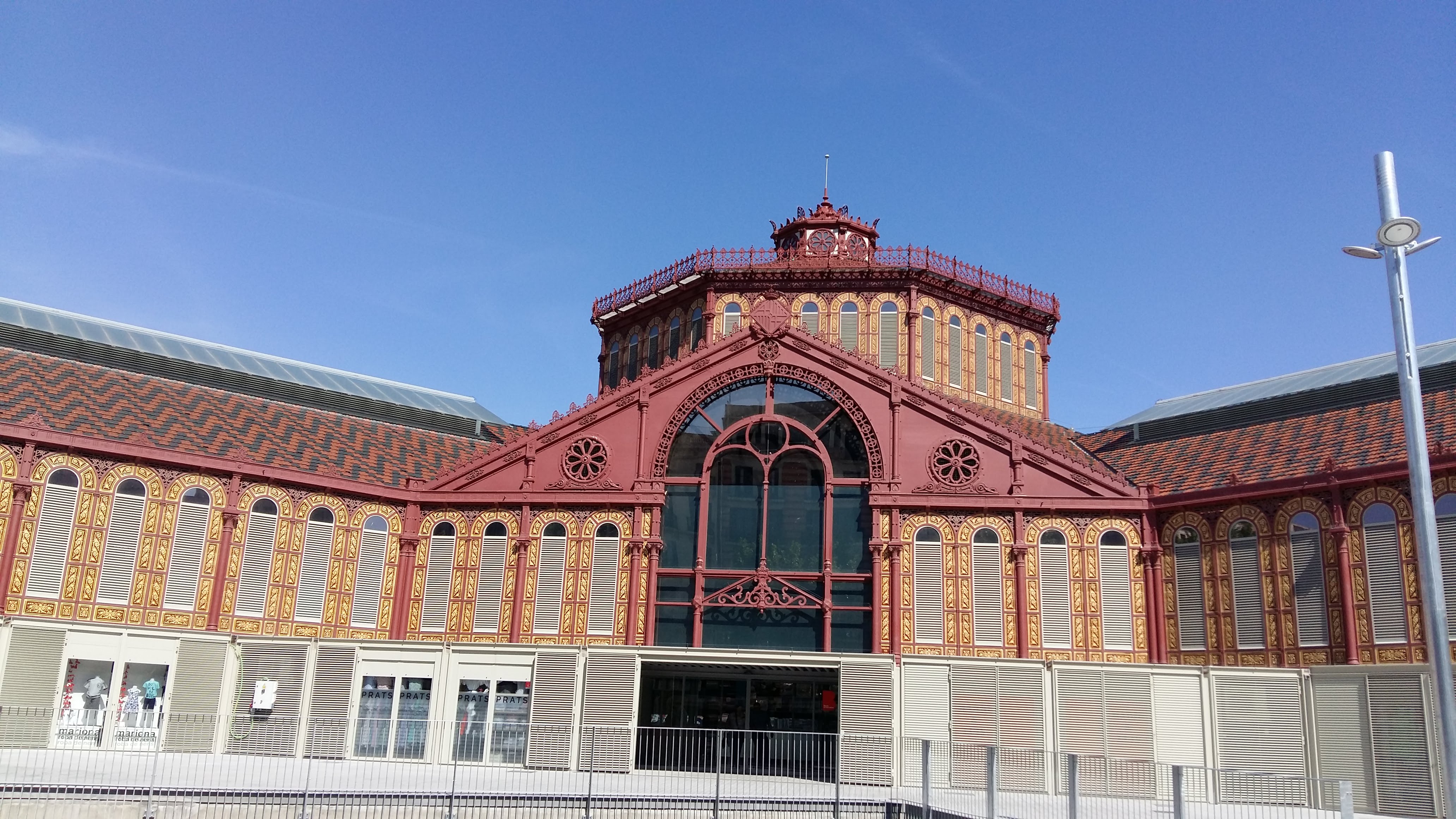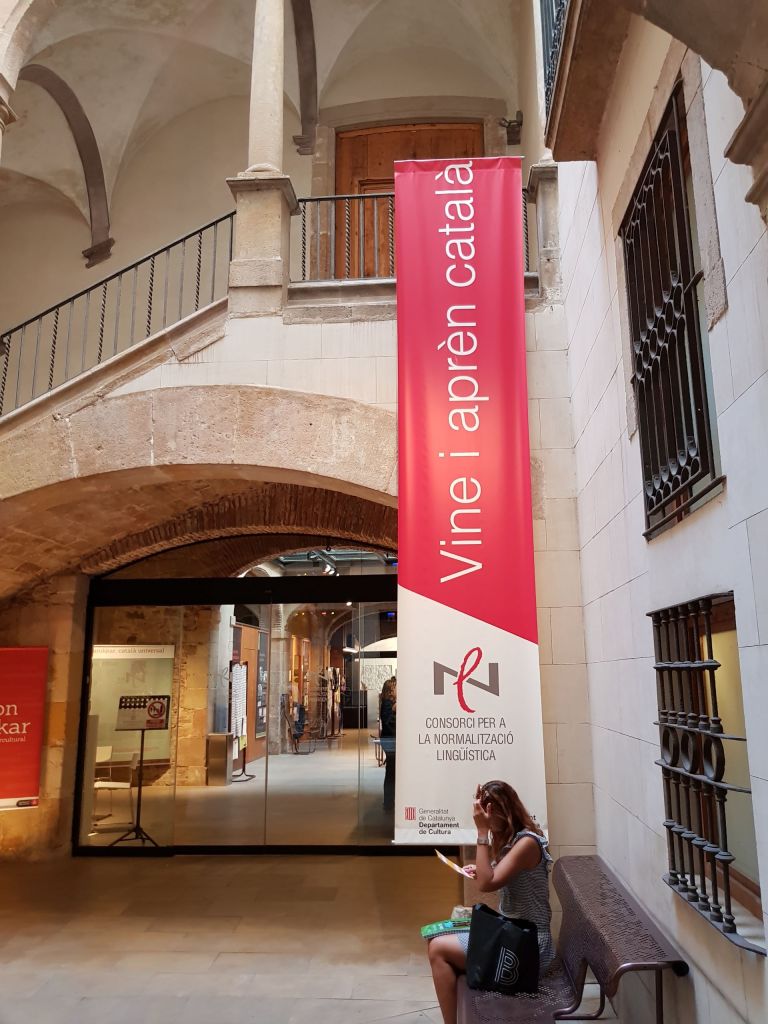A few days before my big move to Barcelona, I found myself talking to my now ex-colleague, Jesús. It was late at night, and we were on the Gatwick Express, heading into Victoria on our way back from the Polyglot Conference in Slovenia. Jesús is from Valencia, and so he took a particular interest in my decision to move to Spain. He asked me if I already had any friends in Barcelona.
“Yes,” I said, quickly. “Lots of friends. So many people, from all over the world. I know all of them.” There was a pause, which I interrupted to re-emphasise: “I have lots of friends.”
“OK,” Jesús replied, cautiously. “Just that I know you know lots of people, but just in case you need anything, my sister’s been living in Barcelona for years now, and she lives very close to where you’re going to be, so if you ever need anything just give her a call.”
I was taken aback. Not only was this so incredibly kind and thoughtful of Jesús to suggest, but the reality is that whenever you move to a new country, you never really know as many people as you think. There are fleeting connections that come and go, occasional numbers exchanged at meet-up groups, people you get on with who then mysteriously leave the country without saying a word… Knowing somebody who actually lived there, permanently, and was from there was like finding water in the desert. I graciously accepted.

The next day, a TV crew from the Catalan News Station TV3 had come to find me at work in London and shoot a short interview about why I was moving to Barcelona. When I met them at reception, the journalist greeted me in Catalan. I then turned to greet the cameraman in Catalan too. He turned out to be from Madrid, and although he understood Catalan, he said he didn’t really speak it because, well, he was Spanish.
The journalist, Sergi Mulero, then told me that actually, although he was Catalan, he came from a Spanish speaking family in Catalunya as well. He’d learned Catalan at school and grew up bilingually, but actually, his first language was Spanish.
That was that. We spent the rest of the morning speaking Spanish.
The day I arrived in Barcelona, the main Catalan TV channel had been playing that report on repeat pretty much all day. When I logged into Twitter, I found hundreds of messages from people all across Catalunya welcoming me, thanking me for choosing them, and wishing me all the best.
That evening, I got a WhatsApp. It was Jesús. “My sister and her family have been watching you all day on Catalan TV, and they want to invite you to join them for lunch,” he said.
I got in touch with Jesús’s sister, Maria, and we messaged in Spanish and arranged to meet that Saturday at 2pm – lunchtime in Spain – by the newly refurbished Mercat Sant Antoni.
Needless to say, I got totally lost. After 20 minutes of walking in circles around the outside of the gigantic, €80 million crucifix that was the Mercant Sant Antoni, I received a phone call. It was Maria, asking where I was. I explained I had no idea, but that I was by one of the entrances. Eventually we found each other, and walked to the restaurant to meet her, her husband, their daughter and her godfather. After we finished greeting each other, Maria asked a question that nobody would ever ask in London.
“Pues ¿qué idioma vamos a hablar? So what language are we going to speak?”

I was taken aback. Weren’t we already speaking a language? Wasn’t it already decided? Every centimetre of my body began to fill with fear that they were going to ask me to speak English to them. How many times had that happened to me when living abroad? How many friendships had I started that turned out to just be glorified free English lessons? I groaned.
“Bueno, es que el idioma de nosotros es el catalán,” she explained while my head exploded. “Cuando salimos a comer los sábados, siempre hablamos en catalán. It’s just that our language is Catalan. When we go out to eat on Saturdays, we always speak in Catalan.”
My head was exploding for lots of reasons. The first, was that I knew Maria was from Valencia. When I lived in Valencia, I remembered distinctly that Catalan (or Valencian, as it’s known there) was always the elephant in every room. Everything – all street signs, all addresses, bus timetables, etc. – was always written in valencià, but nobody really spoke it. I remembered so clearly when I went to the town hall to register my existence in Spain, asking the civil servant behind the desk whether she spoke any Valencian.

“Nos obligan a aprenderlo en el colegio, pero… They force us to learn it at school, but…” she leaned closer, to whisper: “Nadie lo habla aquí. Ni palabra. Nobody speaks it here. Not even a word.”
The other reason was that I knew that although Jesús was very proud of Catalan and had done most of his school in it, he tended to speak Spanish. I’d just assumed that, like the presenter from TV3, he came from a Spanish speaking family.
“Si, és molt estrany. Yes, it’s very strange,” Maria said, switching to Catalan when I asked her about this. “En Jesús era sempre el meu germà castellanoparlant. Tots parlàvem català, i ell sempre contestava en castellà. Jesus was always my Spanish-speaking brother. We all spoke Catalan, and he always answered in Spanish.”
I told them that I loved Catalan, that I thought it was the most beautiful of all the Romance languages, the missing piece of the puzzle between Spanish, French, Italian and Portuguese. But I apologised, explaining that although I wanted to learn more Catalan, I had just arrived and my spoken Catalan was weak. I asked them to please continue speaking Catalan as though I weren’t there, but that I would feel more comfortable expressing myself in Spanish.
Of course it was no problem, but as the conversation went on, everyone by default shifted into speaking Spanish. I felt terrible. I felt like that one annoying person at a group of internationals in Berlin who all spoke German but who kept saying “Could we just speak English please so everybody understands?” Forcing people to use a major world language instead of their beautiful ‘minority’ language so they could speak to me was certainly nowhere to be found on my list of things to do when I moved to Catalunya. Yet I’d just arrived, and that’s exactly what I was doing.
It was so lovely to meet Maria and her friends and family, and I really couldn’t have imagined a nicer way to start my new life in Barcelona. I had sudden flashback half way through to last time, when I was living in Valencia, and I used to go out to restaurants on a Saturday for lunch that were always packed full with huge tables of Spanish families and friends eating, drinking, talking and enjoying. I’d always observe them from the tiny table they’d put me on in the corner, thinking that I would never feel the same connection to this beautiful place that they did. I would always be an outsider, a permanent tourist, a guiri. Those thoughts are partly what took me back to the UK, convinced that really you had to live in your own country to be happy. Yet three years later, here I was sitting at the table, chatting away in Spanish and dishing out huge plates of arroz negro.
Yet I felt so bad about forcing everyone to speak Spanish, that I made a pact with myself. From now on, I was only going to use Catalan. Everywhere, and with everyone. Why not? After all, all the signs everywhere were almost always just in Catalan. In most cafés and restaurants you had to play this weird game where you’d decide what you want by reading the menu in Catalan, then translate it back into Spanish so that you could order it from the waiter. Why not make life easier for everyone and just speak Catalan to everyone instead?

Well, almost everyone that is.
Armed with my new Catalanophile confidence, my first target was the new Tim Hortons that had opened up near my house. I’d never heard of Tim Hortons, but apparently it was the place to go in Canada, which is why it made total sense for it to open just off Plaça de Catalunya in Barcelona, where, once again, every single word inside it from the ‘push’ and ‘pull’ signs on the doors to the list of coffees was written in Catalan.
I awaited my turn, and eventually was served.
“Hola, ¿qué te pongo? Hey, what can I get you?” I was asked, in Spanish.
“Bona tarda,” I replied proudly, in Catalan. “Em dones un cafè negre sisplau, i un donut de dolç de llet. Could I get a black coffee please and a dulce de leche donut.”
There was a silence. I had been concentrating so hard on remembering how to say dulce de leche in Catalan that I’d made the whole order focusing on the display case, without making eye contact. Clearly I had made some horrendous grammar mistake. Clearly I had used some kind of Castillian Spanish word. Something had happened. Something had gone wrong.
Eventually I looked up. As my eyes made their way up to meet dark circles of the man behind the till, they passed over a name badge.
First I saw the name ‘Eduardo’. Then I saw the Colombian flag next to it.
“Oh shit,” I thought.
“Molt bé,” he answered in perfect Catalan with the most beautiful Colombian accent. “És per aquí o per emportar? Is that to have here or take away?”
Subscribe to updates from AlexRawlings.co.uk


Gràcies, Alex! Benvingut a Catalunya i benvingut al català!
LikeLike
Gràcies Jordi 🙂
LikeLike
Reblogged this on Gaston Dorren, language writer and commented:
Alex Rawlings is a Barcelona-based polyglot who recently exited from Britain. If you want to peep into the mind and daily life of a person speaking a dozen or so languages, follow his blog. Here’s a repost of his latest story.
LikeLike
Hi Alex,
It would be nice if you could blog about the challenges of trying to speak two closely-related languages at the same time. I find that interference is one of the hardest parts of language-learning, and I even find that it creeps up when I speak languages that aren‘t at all similar (e.g. Russian and Swedish), much less if I suddenly try to speak Afrikaans in the Netherlands!
Anyway, just a thought.
Tom
LikeLike
La veritat és que això passa molt, especialment a Barcelona. Els cambrers t’atenen directament amb castellà en lloc de català, independentment de si en parles o no. Afortunadament, en altres ciutats menys turístiques com Lleida quan t’atenen en botigues o restaurants ho solen fer en català si el coneixen.
És una pena que s’utilitzi tant poc el català en la vida quotidiana en les grans ciutats.
LikeLike
Muy interesante su entrada.
Pero desconfíe… el castellano es tan propio de Barcelona como el catalán.
Otra cosa es que le quieran vender una moto distinta de la que hay.
LikeLike